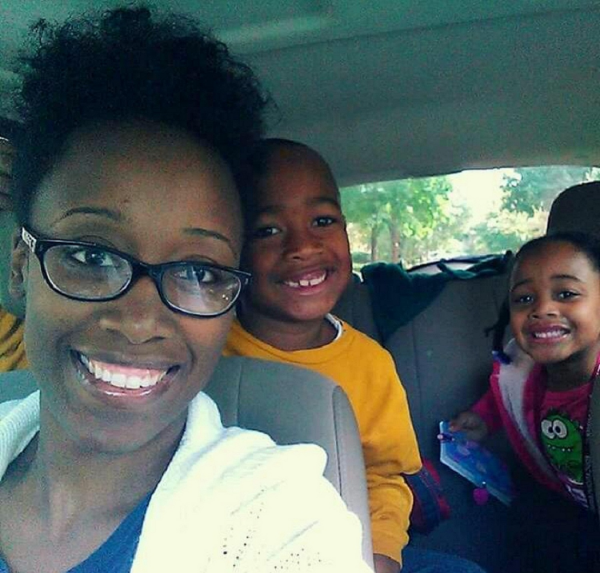Being raised as a Jehovah’s Witness, I was taught not to question the doctrine. Free thinking is considered as wavering in belief, and the majority of association is maintained within the church itself—regular socialization with others outside the church is generally frowned upon as Witnesses are taught to remain separate from the rest of society.
Despite those strict boundaries, my childhood was pretty normal. I road tripped with the family in our station wagon, acquired my fair share of scraped knees from outdoor shenanigans, and watched Saved By the Bell every weekend. However, if you were to ask others, I always stood out as a little different. Instead of Saturday morning cartoons, I knocked on doors with my mother and sisters, preaching in itchy lace dresses and patent leather shoes. Birthdays were synonymous with paganism. Celebrate Christmas? Not happening! Dress up for Halloween? Forget it! I might as well sit at the foot of Satan and his minions. I spent the greater portion of my school years chilling in the library during class holiday parties.
“Don’t you want to live forever?” my mother had asked.
But when I was 18, I took a leap of faith and went to college, leaving the church amid dropped jaws and judgmental whispers.
“Don’t you want to live forever?” my mother had asked, gazing at me with curiosity. She searched my face for a sign that I cared, even remotely, about her question.
I raised my eyebrows and managed to stammer, “Uh, I guess. I mean, I dunno.”
My mother instructed me to hand over the keys to her house, and our relationship became nonexistent. Jehovah’s Witnesses strongly believe that once you leave the group, you have shunned God and are as good as dead. They are further advised not to speak to “nonbelievers.” In her mind, I was already among the dead—someone who had checked in for the ever-approaching apocalypse. And in my mind, she had already drank the proverbial Kool Aid.
Being shunned was a swift push into adulthood with no guidance. I questioned my overall ability to possess some sense of normalcy in the world. As a child, all of my decisions and activities were implicitly outlined for me; this regimented way of living left no room for free thought or the ability to make decisions outside of Witness boundaries. But I embraced my newfound freedom with open arms during my college years. I explored, I laughed, I loved. I finally had the opportunity to live.
At 24, I decided to have children of my own. It was then that I began to ponder my own relationship—or lack thereof—with my mother. Tears flowed as her absence was felt at my baby shower, a moment exacerbated by my fluctuating pregnancy hormones.
As I drew closer to giving birth, the chasm between my mother and I grew larger. Days turned into weeks, and weeks would become months before she reached out to contact me. Those brief phone calls were the moments between mother and daughter that I longed for. But they were short-lived as my mother would often delve into judgmental, religious rhetoric. After these conversations, I would often feel empty, confused, and angry. Would I be able to bond with my children with my unresolved hurt?
Tears flowed as her absence was felt at my baby shower…
Despite these circumstances, I made a firm resolution to not repeat the same hurtful patterns of disconnect with my own children. From the moment my children were born, I showered them with what I had longed for from my mother: unconditional love.
Once I entered my 30s, the questions in my head as to why my mother shunned me so completely had quieted themselves a bit more. While the pain of this loss has not completely vanished, it has subsided. As I cemented a career in social work, I learned of the essential role that mothers play in their childrens’ lives. I now have a stronger insight as to how my childhood has shaped my life as an adult. All of these previous experiences have made me become more in tune with my own children’s feelings, and have increased my desire to provide them with a richer, more vibrant life. I allow them both the freedom to make age-appropriate decisions, with the hopes that it will help them grow into well-rounded, confident adults.
The passage of time, the help of a therapist, and writing as an outlet have all helped me move forward. At 33, I have made meaningful friendships that are based on love and a mutual respect for our differences. I have settled into holidays with more ease, starting traditions for my children to carry forward, if they so choose. And I can bake the hell out of Christmas cookies. Still, it’s not easy reconciling my past with my present. I’m a work in progress. I have daily pep talks with myself just to feel normal, whatever normal means. At the end of the day, my kids tell me I’m the greatest mother ever. If that’s normal, I’ll take it.


















